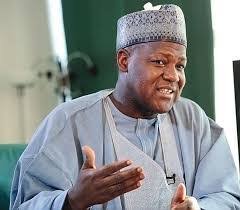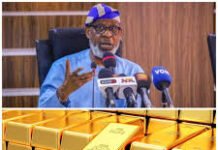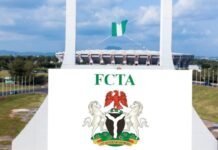A former House of Representatives Speaker Yakubu Dogara, has said that president Bola Ahmed Tinubu’s economic reform programme is a revolution, the most far-reaching in many decades of Nigeria’s nationhood.
According to him, the President inherited an economy in comatose, which needed such “bold and courageous” decisions to pull it back from the brink.
On assumption of office on May 29, 2023, the President removed subsidies on petrol and scrapped multiple exchange rates, the twin economic policies that have defined his administration.
Dogara said: “This is a legacy that would impact generations after us and cement President Tinubu’s place in Nigeria’s history as the undisputed most consequential economic reformer of our time”.
He spoke during the maiden Distinguished Parliamentarian Lecture, organised by the House of Representatives Press Corps at the National Assembly Complex in Abuja.
His lecture, titled: “Navigating Tax Reform in Nigeria: Insights on President Tinubu’s Policies”, examined the origins, scope, and expected impact of the tax reforms encapsulated in the Nigeria Tax Act (NTA) 2025 and related legislation.
“By the time President Tinubu took office, the economic debris of the nation had become too conspicuous to be ignored. About N22.7 trillion had been printed and injected into the economy in the name of Ways and Means, thereby destroying the value of the naira in our pockets.”
“Some of the foreign loans had been procured to help strengthen the naira, a measure that could only be sustained by voodoo economics.”
“From day one, it was clear something urgent, nay revolutionary, must be done to prevent our economy from imploding.”
He described President Tinubu’s sweeping tax reforms as the most audacious overhaul of Nigeria’s fiscal framework in decades, urging the government to ensure transparency and sustained implementation to secure public trust.
Dogara outlined the key provisions of the reforms, which consolidated 16 federal tax statutes into four principal Acts:
Nigeria Tax Act (NTA) 2025: Consolidates multiple tax laws into a unified framework, expands the tax base to cover digital services and virtual currencies, and introduces a 15 per cent minimum effective tax rate for large companies.
Nigeria Tax Administration Act (NTAA) 2025: Modernises assessment, collection, and compliance rules, introduces simplified filing for low-income earners, mandates the use of unified Taxpayer Identification Numbers (Tax IDs), and establishes a Tax Ombudsman’s Office.
Nigeria Revenue Service (Establishment) Act (NRSEA) 2025: Establishes the Nigeria Revenue Service to replace the FIRS, with expanded powers and mandatory transparency reporting.
Joint Revenue Board (Establishment) Act (JRBEA) 2025: Harmonises federal-state revenue sharing and coordinates dispute resolution through a Tax Appeal Tribunal and Ombudsman.
Dogara said the reforms, which would be fully operational by January, are designed to simplify Nigeria’s complex tax regime, broaden the tax net, encourage compliance, and align domestic rules with global standards.
![]()










